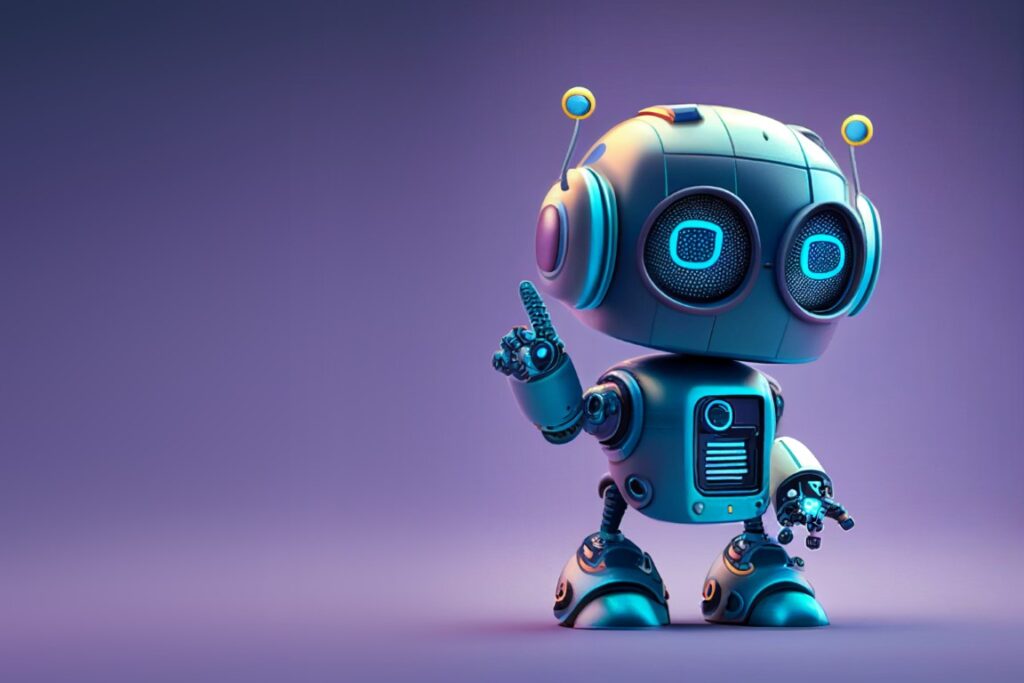Table of Contents
Intro to Robot Assistants
The emergence of digital assistants such as Siri and Alexa has revolutionized the way we interact with technology and made our lives easier in many ways. As artificial intelligence (AI) continues to advance, it’s not difficult to envision a future where everyone has their own personal robot assistant to assist them with various tasks. While the idea of having a personal assistant is not a new one, the technological capabilities to make it a reality have improved dramatically in recent years.
The widespread adoption of robot assistants has the potential to have a profound impact on our daily lives. The use of robot assistants can streamline and simplify our daily routines, allowing us to be more efficient and productive. Imagine waking up in the morning and having your robot assistant make your coffee, turn on your favorite morning news program, and remind you of your appointments for the day. This would not only save time, but also reduce the stress associated with juggling multiple tasks at once. Beyond the convenience factor, robot assistants could also have significant economic implications. For businesses, the adoption of robot assistants could lead to increased productivity and lower costs associated with tasks such as customer service and data analysis. However, the potential downside of this could be job displacement, as some tasks may become automated and require fewer workers.

Brief History of Robots
The history of robots can be traced back to ancient times when people first began to imagine and create machines that could perform tasks automatically. The word “robot” itself comes from the Czech word “robota,” which means “forced labor.” In ancient Greece, myths and legends featured mechanical beings like Talos, a bronze giant who was said to guard the island of Crete. In China, inventors created automata like the “clever craftsmen,” a mechanical device that could write poems and paint pictures.
During the Industrial Revolution in the 18th and 19th centuries, machines that could perform repetitive tasks with greater speed and efficiency were developed. This led to the creation of automated looms, spinning machines, and other industrial equipment. In the 20th century, the concept of robots, as we know them today, began to take shape. The term “robotics” was coined by science fiction author Isaac Asimov in 1941, and his stories about robots helped to popularize the idea of intelligent machines.
In the 1950s, the first true robots were developed for industrial use. These early robots were large, heavy machines that were designed to perform specific tasks, such as welding or painting. They were typically operated by remote control and had limited functionality. In the following decades, advancements in technology and computing power allowed for the development of more sophisticated robots. These robots were able to perform a wider range of tasks and were equipped with sensors and other technology that allowed them to navigate their environment and interact with humans.
Increased Efficiency and Productivity
One of the most obvious benefits of having a robot assistant is increased efficiency and productivity. With a personal assistant taking care of mundane tasks, people would have more time to focus on the things that really matter. For example, a robot assistant could take care of scheduling appointments, setting reminders, and even managing email. This would free up a significant amount of time and reduce stress levels for many people.
In addition, robot assistants could be programmed to complete tasks with greater accuracy and speed than humans. This could have numerous benefits, such as reducing errors in medical diagnoses or improving the efficiency of manufacturing processes. Overall, increased efficiency and productivity could have a significant positive impact on many aspects of daily life.
Really Fast Cloud Hosting
Improved Access to Information
Another potential benefit of having a robot assistant is improved access to information. With the ability to connect to vast amounts of data, robot assistants could help people learn new things, find information quickly, and access resources that would otherwise be difficult to find. For example, a student studying for an exam could ask their robot assistant to provide them with information on a specific topic, and the assistant could search the internet for the most relevant and accurate information.
In healthcare, robot assistants could help doctors and nurses access patient information quickly and accurately, potentially improving patient outcomes. They could also assist with the development of new treatments and medications by analyzing large amounts of data and identifying patterns that humans may not be able to see.
Potential Economic Implications
While increased efficiency and productivity could have many positive impacts, there are also potential economic implications to consider. With widespread adoption of robot assistants, there is a possibility that many jobs that are currently performed by humans could become automated. This could lead to unemployment and job loss, particularly in industries such as manufacturing, transportation, and customer service.
However, there are also potential benefits to increased automation. For example, automation could lead to cost savings and improved efficiency, which could lead to lower prices for consumers. Additionally, automation could lead to the development of new industries and job opportunities, particularly in the field of robotics and AI.
Itemized Economics
| Economic Impact | Description |
|---|---|
| Increased Productivity | Robot assistants can perform tasks faster and more accurately than humans, leading to increased output and reduced costs for businesses. This can lead to greater profits and economic growth. |
| Job Displacement | As more tasks are automated, some jobs may become obsolete or require fewer workers, leading to job losses. However, it is also possible that new jobs could be created in industries related to robotics and automation. |
| Reduced Costs in Healthcare and Eldercare | Robot assistants can assist with tasks like medication management, meal preparation, and mobility, reducing the need for expensive institutional care and keeping people in their homes longer. This can lead to reduced healthcare costs and increased economic efficiency. |
| Increased Innovation | The development and implementation of robot assistants can spur innovation in related industries and lead to the creation of new products, services, and job opportunities. |
| Social and Ethical Considerations | The widespread use of robot assistants raises important social and ethical considerations, such as issues related to privacy, safety, and fairness. Addressing these considerations will be crucial to realizing the full potential of robot assistants while minimizing their negative impacts. |
Ethical Considerations
There are also ethical considerations to take into account when considering the widespread adoption of robot assistants. One of the biggest concerns is privacy and data security. With personal information being stored in robot assistants, there is a possibility that this information could be accessed by hackers or used for nefarious purposes.
Another concern is the potential for social inequality. While robot assistants could be very beneficial for those who can afford them, they could also create a divide between those who have access to them and those who do not. This could lead to a situation where only the wealthy have access to the benefits of robot assistants, creating further inequality in society. As with any new technology, there are many factors to consider before widespread adoption can be considered. While there are potential benefits to robot assistants, it is important to carefully consider the potential impacts and ensure that appropriate safeguards are put in place to address any negative consequences. With further research and discussion, we can work towards a future where the benefits of robot assistants are realized without compromising ethical and social considerations.”

Bottom Line
In conclusion, the widespread adoption of robot assistants has the potential to revolutionize daily life in numerous ways. Increased efficiency and productivity, improved access to information, and potential economic benefits are just a few examples of the potential benefits of robot assistants. However, there are also potential drawbacks to consider, such as job loss and ethical concerns. It is important to keep in mind that the development and adoption of robot assistants is still in its early stages, and there is much more to be learned about their potential impact on society. As such, it is crucial that we continue to research and discuss this topic to ensure that any negative consequences are identified and addressed before they become widespread.
Furthermore, it is important to consider the potential benefits and drawbacks of robot assistants within the context of the larger social and economic systems in which they would be operating. For example, the development of new industries and job opportunities resulting from increased automation could help to mitigate job loss, but only if there is a concerted effort to invest in retraining programs and other support structures for workers. In addition, it will be important to consider the potential impact of robot assistants on social inequality and to ensure that access to this technology is equitable. While there is potential for robot assistants to help bridge the digital divide and improve access to information and resources, it is important to consider how these benefits could be distributed fairly and how they could be used to address existing social inequalities.
Overall, the widespread adoption of robot assistants has the potential to revolutionize many aspects of daily life. However, it is crucial that we carefully consider the potential benefits and drawbacks of this technology and work to address any negative consequences. By doing so, we can work towards a future where robot assistants are used to improve efficiency, productivity, and quality of life for all.






